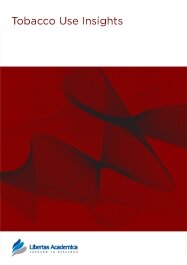

Publication Date: 28 Jan 2010
Type: Review
Journal: Tobacco Use Insights
Citation: Tobacco Use Insights 2010:3 1-15
doi: 10.4137/TUI.S2819

Exposure to tobacco smoke is an established risk factor for lung cancer, although a possible role for genetic susceptibility in the development of lung cancer has been inferred from familial clustering of the disease and segregation analysis. Findings of familial aggregation and statistical evidence for a major susceptibility gene have led to the search for high penetrant, rare, single genes and low penetrant, high frequency susceptibility genes for lung cancer. The relatively small number of linkage studies conducted to date, have identified potential lung cancer susceptibility loci on chromosomes 6q, 12p, and 19q. A variety of studies have examined single nucleotide polymorphisms of several low penetrant, high frequency genes encoding for enzymes involved in the metabolism of carcinogens and DNA damage repair, as likely candidate susceptibility genes. These studies have produced somewhat conflicting findings and, when significant, only modest associations have been reported. Relatively few studies have looked for potential gene-environment interactions, explored associations between two or more genetic polymorphisms or evaluated interactions between genetic polymorphisms and endogenous risk factors. Few large scale genome wide association studies conducted recently have provided evidence that common variation on chromosome 15q25.1, 5p15.33 and 6p21.33 influences lung cancer risk and cancer types with strong environmental risk factors. It is hoped that newer research strategies, selecting candidate genes within pathways and genotype at multiple markers within a gene, employing new technologies, may allow complete coverage of the variation within candidate genes in multiple pathways and to unravel the genetic susceptibility to lung cancer. This knowledge could, in turn, be used to identify persons at risk, to individualize treatments such as chemoprevention, to personalize harms of smoking and to motivate cessation.
PDF (582.13 KB PDF FORMAT)
RIS citation (ENDNOTE, REFERENCE MANAGER, PROCITE, REFWORKS)
BibTex citation (BIBDESK, LATEX)

This is the most author-friendly process I have experienced. The staff were very attentive to us and kept us posted at every step of the process. They were great to work with. I commend the editorial staff for their professionalism and dedication to science and scientific publishing.
Facebook Google+ Twitter
Pinterest Tumblr YouTube